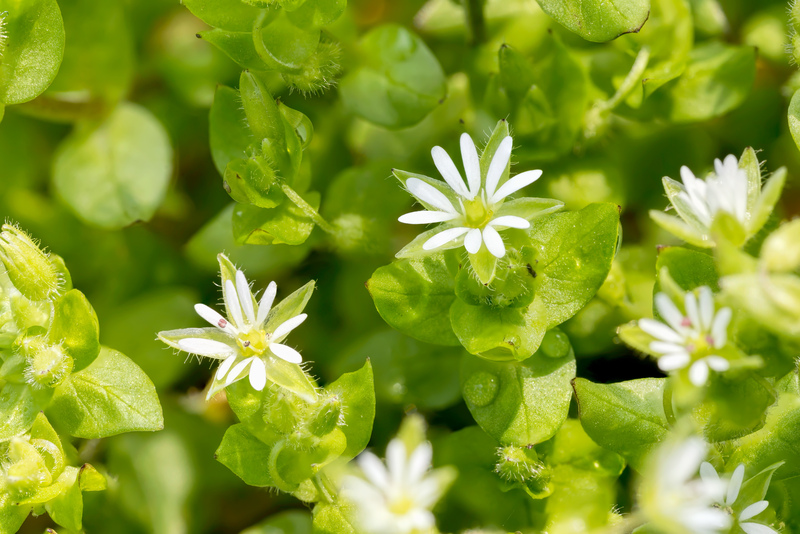Ways to Maintain the Health of Your Garden Plants in Winter
Posted on 18/06/2025
Ways to Maintain the Health of Your Garden Plants in Winter
As the cold season sets in, ensuring the vitality and health of your garden plants can become a challenge for even the most seasoned gardeners. Winter plant care requires specific methods and attention to detail to protect delicate roots, stems, and foliage. This comprehensive guide explores various ways to maintain the health of your garden plants in winter, providing you with practical tips and expert insights to help your garden thrive throughout the chilly months.
Why Is Winter Garden Plant Care Important?
Winter brings with it freezing temperatures, frost, shorter days, and sometimes harsh winds--all of which can take a toll on your plants. By maintaining the health of your garden plants in winter, you help them survive and bounce back more robustly in spring. Healthy overwintered plants tend to:
- Flower and fruit earlier
- Resist disease and pests more effectively
- Retain better shape and vigor
- Require less intervention during the growing season
Learning to protect garden plants during winter is essential for gardeners in all climates--from mild, damp zones to regions with snow and hard frosts.

Best Practices for Maintaining Your Garden Plants in Winter
1. Mulching: The First Line of Defense
Applying mulch is one of the most effective methods to keep garden plants healthy in winter. Mulch helps retain soil moisture, suppresses winter weeds, and insulates plant roots against temperature fluctuations. Here's how to make the most of mulching:
- Apply mulch after the first frost to stabilize soil temperature and prevent freeze-thaw cycles that can heave roots out of the ground.
- Use organic mulches (like bark chips, straw, or leaves) about 2-4 inches deep around your perennials, trees, and shrubs.
- Avoid piling mulch against plant stems as this can encourage rot and pests.
Mulching is a simple yet powerful way of preserving plant health during the winter months.
2. Watering: Don't Let Roots Dry Out
Watering garden plants in winter is often overlooked, but winter drought can be just as harmful as summer dryness. Moist soil holds heat better than dry soil, which can improve plant survival rates in cold weather. Some key tips include:
- Water deeply before the ground freezes, especially for evergreens and newly planted trees and shrubs.
- On milder winter days, check soil moisture under mulch and water sparingly if needed.
- Reduce overall watering, but never let soil dry out entirely.
Proper moisture management is essential to maintaining garden plant health in winter.
3. Pruning Wisely: When and How
Pruning in winter serves to remove dead or diseased growth, improve air circulation, and prepare your plants for spring growth. However, not all plants should be pruned at the same time. Consider these approaches:
- Prune deciduous trees and shrubs during dormancy, usually late winter, before new growth starts.
- Avoid heavy pruning of evergreens or plants that bloom on old wood, as this may reduce flowering.
- Remove any damaged or diseased branches promptly to prevent the spread of pathogens.
Correct pruning contributes greatly to the overall winter hardiness of your garden plants.
4. Protecting Plants from Frost
Frost can severely damage tender shoots and buds. Keeping garden plants safe from frost is essential for those in colder regions. To minimize frost damage:
- Cover vulnerable plants with frost cloths, burlap, or old bed sheets on especially cold nights.
- Remove covers during the day to allow plants to breathe and receive sunlight.
- Avoid using plastic directly on foliage as it can trap moisture and cause freezing on contact.
Temporary protection goes a long way in ensuring the long-term health of your garden plants during cold weather.
5. Using Windbreaks and Physical Barriers
Cold winds increase evaporation and desiccation, which leads to browning and dieback in exposed plants. To safeguard your garden from winter winds:
- Install windbreaks using fences, burlap screens, or dense shrub plantings.
- Use cloches, cold frames, or even overturned pots for individual small plants.
- Potted plants can be grouped together and placed in sheltered areas to reduce exposure.
Implementing wind protection is a vital way to maintain garden plants over winter.
6. Caring for Container Plants
Potted and container plants are more susceptible to cold stress since their roots can freeze faster. To keep container garden plants healthy through winter:
- Move pots against a south-facing wall or inside a garage/shed during extreme cold.
- Insulate containers with newspaper, bubble wrap, or straw to buffer temperature changes.
- Check for drainage holes to prevent waterlogging, which can freeze and damage roots.
Special attention to containers helps you protect your plants in winter and spring.
7. Choosing the Right Plants for Your Zone
One of the easiest ways to ensure garden plant health during winter is to select plant species that are hardy for your climate zone. Here's how:
- Consult the USDA Plant Hardiness Zone Map or your local equivalent to determine suitable plants.
- When in doubt, choose native or proven hardy varieties for your area.
- Test borderline-hardy plants in containers or protected spots in the garden.
Plant selection is fundamental for long-term winter garden care success.
Additional Tips to Maintain Garden Plant Health Over Winter
Feeding and Soil Care
Fertilizing during winter is generally discouraged, as most plants are dormant and won't utilize nutrients. Instead, focus on long-term soil improvements, such as:
- Top-dressing beds with compost or well-rotted manure in late fall or early winter.
- Raking in a slow-release organic fertilizer towards the end of winter, just before active growth resumes.
- Testing soil pH and adjusting as needed for spring.
Soil health is the root of winter plant maintenance and year-round garden vitality.
Monitoring and Pest Prevention
Winter may reduce pest activity, but rodents, deer, and rabbits can still damage plants, especially with less food available outside.
- Wrap trunks of young trees to prevent gnawing from rodents and rabbits.
- Use repellents or fencing for deer-prone areas.
- Regularly inspect for signs of disease or insect eggs and take action as needed.
Vigilance is key to keeping garden plants healthy in winter.
Greenhouse or Indoor Solutions
For gardeners with particularly delicate or valuable plants, bringing them indoors or into a greenhouse can be the ideal solution.
- Use grow lights and heaters to maintain appropriate warmth and light levels.
- Ensure good humidity and air circulation to prevent mold and diseases.
- Avoid overwatering, as indoor plants use less water in winter.
These more advanced protections provide a last line of defense for your cherished garden specimens.

Frequently Asked Questions About Winter Plant Health
Should I cover all my garden plants for winter?
No, you don't need to cover every plant. Only protect tender, half-hardy, or newly planted varieties that are at risk from frost or cold winds. Hardy and established plants usually adapt well to seasonal changes.
What is the most important thing for keeping plants healthy in winter?
Consistency is crucial--maintaining even moisture, providing insulation for roots, and shielding vulnerable plants from extreme conditions are the most important aspects of successful winter plant care.
How do I revive a damaged plant after winter?
Assess any winter damage in early spring. Prune away dead stems, increase light and water gradually, and provide a balanced fertilizer to stimulate regrowth. Most healthy plants are surprisingly resilient and will recover if given prompt care.
Is it better to water plants in the morning or evening during winter?
Water during the daytime when temperatures are above freezing. Morning is best, allowing excess moisture to evaporate and reducing the risk of frost damage caused by water sitting on leaves overnight.
Conclusion: Ensuring Your Garden Plants Survive and Thrive in Winter
Adopting these ways to maintain the health of your garden plants in winter will greatly enhance their resilience, beauty, and yield in the coming season. Mulch generously, water wisely, prune thoughtfully, and protect the vulnerable while choosing hardy varieties that suit your local climate. By investing a little extra care in the colder months, you're rewarded with a garden that not only survives but flourishes year after year. Winter need not spell the end of your gardening passion; instead, it can be the quiet foundation for a vibrant, thriving spring landscape.
Take action now, and enjoy a lush, healthy garden all year long!
```Latest Posts
Creating a Garden Retreat for Dog-Loving Households
Your roadmap to perfecting orchid care
Harness Tranquility with Inspiring Zen Garden Concepts

